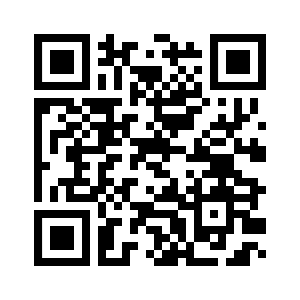Public Sale
08.14.25What is a Public Sale?
If you're exploring cryptocurrency fundraising or considering new digital asset opportunities, the term "public sale" might come up frequently. A public sale is a stage in cryptocurrency fundraising where tokens are offered to the general public, allowing a wide range of participants to contribute to a project’s funding by purchasing tokens before they launch on the open market. Unlike private sales, which are typically limited to select participants, public sales are open to anyone who meets the project’s specified requirements.
Public sales mark a pivotal step for blockchain projects by expanding token distribution, increasing visibility, and building a diverse community of supporters. For contributors, they present an accessible way to participate in new blockchain initiatives through direct token purchases. Below, we’ll break down what public sales are, how they work, and why they’re essential to the digital asset ecosystem.
Understanding Public Sales in Crypto
Definition
A public sale is a fundraising event where blockchain projects offer tokens to the general public. Often referred to as the Initial Coin Offering (ICO) stage for some projects, this sale allows widespread access to tokens, democratizing participation across a broader audience. Projects usually advertise these sales and publish guidelines governing participation to ensure transparency.
Key Characteristics
Open Access: Unlike private sales, public sales invite participation from a general audience rather than a closed group.
Fixed Terms: Projects establish clear rules, including token prices, caps, and purchase limits, to guide the sale.
Early Access Opportunity: Public sales often allow participants to obtain tokens at initial prices before broader market trading begins.
Public sales provide a crucial touchpoint for blockchain projects aiming to gain community traction while fulfilling their fundraising goals.
How Do Public Sales Work?
Public sales follow well-defined procedures to ensure inclusivity and transparency for contributors. Here’s an overview of the typical process:
Announcement and Timelines:
The project team announces the public sale, sharing the start and end dates, token price, sale cap, and instructions on how to participate.
Token Allocation:
Project developers allocate a specific number of tokens or a percentage of the total token supply for the public sale.
Participation Requirements:
Contributors must meet certain eligibility criteria. This could include completing a Know Your Customer (KYC) process, agreeing to terms and conditions, or holding accounts on approved platforms.
Accepted Payment Methods:
Projects may accept payments in cryptocurrency, fiat currencies, or both. Details about accepted methods are disclosed in the initial sale documentation.
Purchasing Tokens:
Participants can purchase tokens up to predefined limits, ensuring fair access and preventing large-scale buyouts by a single party.
Post-Sale Distribution:
After the sale ends, contributors receive their purchased tokens, either immediately or following a short waiting period.
Where Do Public Sales Take Place?
Most public sales are conducted through:
Dedicated Platforms: Blockchain projects may establish their own website or app to host the public token sale.
Launchpads: Third-party launchpads provide a streamlined platform for hosting public sales, allowing participants to discover and support promising new projects.
Decentralized Exchanges (DEXs): Public token sales may also take place on decentralized platforms, enhancing accessibility for contributors globally.
Why Are Public Sales Important?
Public sales are a key milestone for blockchain projects, benefiting both developers and contributors. Here are the main reasons they matter:
1. Widespread Community Participation
By allowing anyone to contribute (subject to eligibility criteria), public sales foster a sense of inclusivity and encourage wider community participation. This builds a more engaged and diverse supporter base.
2. Expand Token Distribution
Public sales enable the distribution of tokens across a large number of holders, enhancing liquidity once the tokens start trading on exchanges. A broad distribution also helps establish a stable market.
3. Raise Project Awareness
The visibility generated from a public sale helps blockchain projects attract attention from potential contributors, media outlets, and industry experts. It’s an effective way to build momentum pre-launch.
4. Democratize Access
Public sales are designed to make digital assets more accessible, providing participants with an entry point into blockchain projects without the exclusivity of private token contribution rounds. This opens new opportunities for a wider audience.
5. Achieve Fundraising Goals
Beyond community benefits, public sales form a critical fundraising pillar, ensuring projects obtain the financial resources needed to move through their development phases.
Risks and Considerations
While public sales open doors of opportunity, contributors should remain mindful of potential risks:
Market Volatility:
Public sale prices may not reflect future market performance. Token values may fluctuate based on market sentiment and project development.
Regulatory Environment:
The regulatory status of token sales varies by jurisdiction. Contributors must ensure they comply with local laws and understand associated risks.
Project Viability:
Researching a project’s roadmap, team credentials, and technical feasibility is critical to assessing its long-term value.
Scams:
The accessibility of public sales makes them a target for scams. Verifying sale credentials and participating only through trusted platforms is essential for security.
Public Sale vs. Private Sale
Public sales differ from private sales in several ways, summarized below:
Aspect | Public Sale | Private Sale |
Participants | Open to the general public | Limited to invitees and selected participants |
Token Pricing | Often fixed or slightly variable | Typically lower pricing with negotiated discounts |
Scale | Large-scale distribution | Small-scale and targeted fundraising |
Transparency | High, with public documentation | May offer less public disclosure |
Understanding these differences helps contributors align their participation with their personal goals and expectations.
Final Thoughts
Public sales play a foundational role in the cryptocurrency ecosystem, removing barriers for contributors to join promising blockchain initiatives by purchasing tokens before they trade broadly. For blockchain teams, these sales create an avenue to raise funds, distribute tokens widely, and connect with a global community.
Before participating in a public sale, take the time to research project details, such as token utility, technical whitepapers, and the credibility of the development team. While public sales offer exciting opportunities to get involved early, making informed and deliberate decisions ensures a safer and more rewarding experience in the digital asset space.
Disclaimer: Nothing in this entry is intended to be professional advice, including without limitation, financial, investment, legal or tax advice. Ulys is not responsible for your use of or reliance on any information in this entry as it is provided solely for educational purposes. Purchasing crypto assets carries a high level of risk, including price volatility, regulatory changes, and cyber attacks. On-chain transactions are irreversible once confirmed, and errors may result in permanent loss. Please make sure to do your own research and make decisions based on your unique circumstances. Ulys does not itself provide financial services or engage in regulated activities such as money transmission, custodial services, securities brokerage, or lending. Any licensed financial services (e.g., payment processing, crypto-to-fiat transactions, or lending) are facilitated entirely by third-party providers, who are responsible for obtaining and maintaining the necessary licenses under applicable U.S. federal and state laws.
Risk Disclosure: Crypto investments come with risks, including the potential loss of funds. Always research before making financial decisions. Ulys does not provide financial, investment, or legal advice.

